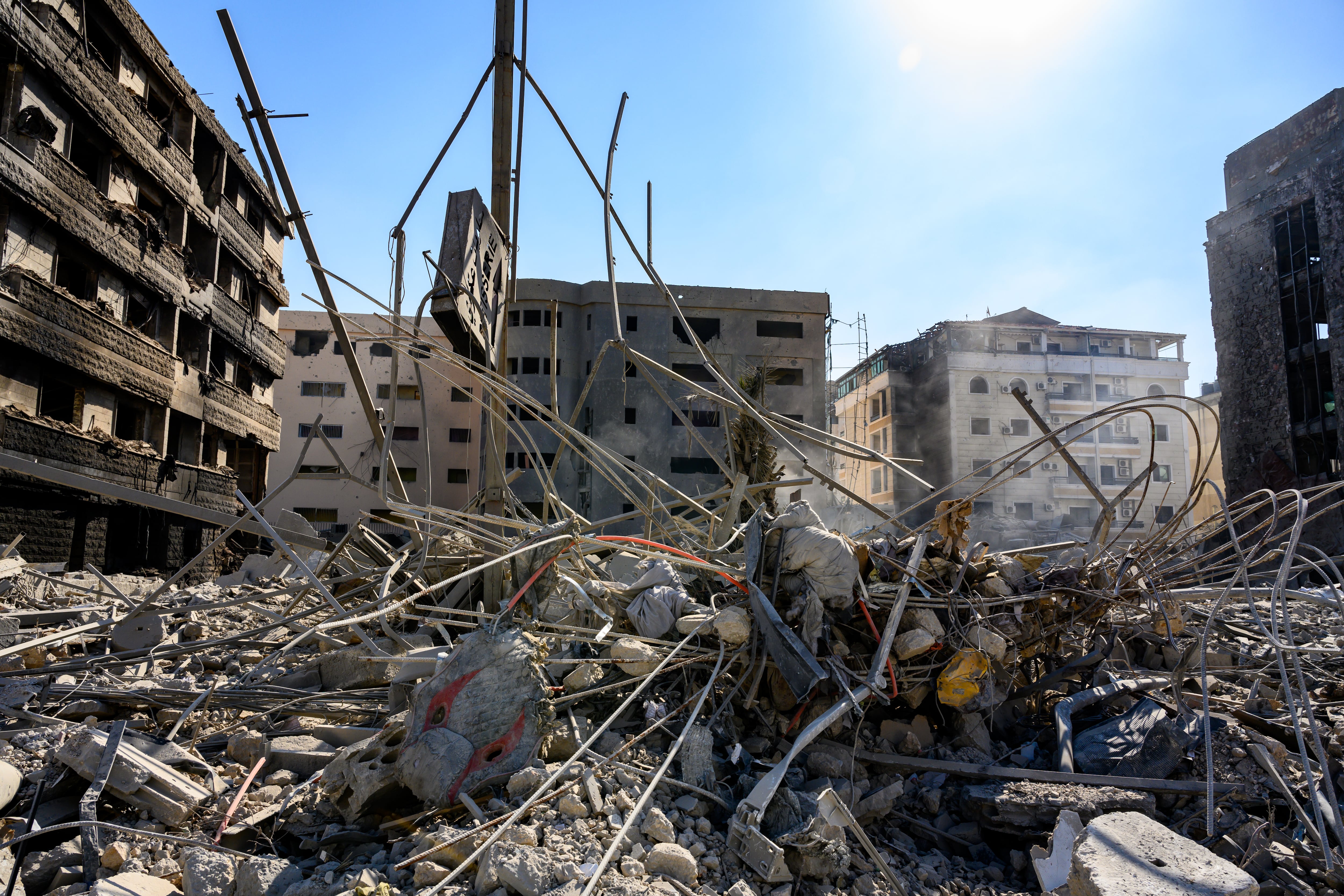
The Israeli army has announced that it has bombed Iran in the early hours of this Saturdayminutes after at least five powerful explosions were recorded in Tehran and a nearby town, Karaj, according to state television and witnesses. Israeli military spokesman Daniel Hagari has defined the attacks as “precise” and directed “against military targets in Iran in response to months of continuous attacks.” The Government of Benjamin Netanyahu promised on the 1st to avenge Tehran’s attack against its territory with 200 missiles and indicated that it would do so at the time and in the manner it deemed appropriate, playing with the element of surprise. Syrian state television has also reported explosions, shortly before, in Damascus and the center of the country.
Iranian authorities have not confirmed the attacks, the extent of which is unknown. The United States had asked Netanyahu that they not be directed against Iranian nuclear or oil facilities, to avoid an open regional war. The Iranian military is on high alert and air traffic monitoring pages show how planes heading towards the capital’s airport have diverted their route.
“The Iranian regime and its proxies in the region have been relentlessly attacking Israel since October 7, on seven fronts, including direct attacks from Iranian soil,” said Hagari, referring to Gaza, the West Bank, Lebanon, Yemen, Iraq, Syria and Tehran, for which Israel blames the Ayatollah regime as leader of the self-proclaimed “axis of resistance.” . “Like any other sovereign country in the world, the State of Israel has the right and duty to respond” and “our defensive and offensive capabilities are fully mobilized,” the spokesperson added, emphasizing that they will do “everything necessary to defend the State of Israel and the people of Israel.”
The spokesman for the White House National Security Council, Sean Savett, has confirmed that Israel has carried out “localized attacks against military targets in Iran” in what he has defined as a “self-defense exercise.” Israel had been preparing retaliation for days, both internally and with the help of Washington. In fact, this week the US Secretary of State, Antony Blinken, started in Tel Aviv and Jerusalem his 11th regional tour during the war, in which he addressed the attack.
Days before, the Pentagon had sent Israel an anti-aircraft battery capable of reinforcing its already sophisticated defense system. He did so in anticipation that Tehran plans to respond to this Saturday’s attack and in the face of a growing shortage of anti-missile defenses in the Israeli army, according to the British newspaper Financial Times. It is managed by nearly a hundred US military personnel, according to the newspaper Yediot Ahronoth. The first who, officially, will be directly involved on the ground in the current war. This contingent will be in command of a THAAD (Terminal High Altitude Area Defense) anti-aircraft defense battery, a model that the United States already has deployed in other areas of the Middle East.
It is the second time this year that both countries exchange attacks in their territories, something unprecedented in their history and which has generated fear that the progressive extension of the conflict in the Middle East (currently with the invasion of Lebanon) ends up degenerating into an open and direct war between them, after years of hidden confrontation. The first, in April, originated in the Israeli bombing of an Iranian diplomatic building in Damascus that killed 13 people, including three senior members of the Revolutionary Guard. The ayatollah regime responded with 300 missiles and drones against Israel, intercepting almost all of them with the help of its allies. The attack was almost choreographedto show muscle without giving rise to violent retaliation. Israel also opted for limited retaliation, more focused on showing the ability to achieve the nuclear program than on causing damage.
Both parties Then they turned the wrong page. Until three months later, when Israel killed Hamas leader Ismail Haniye in Tehran, who had attended the inauguration of the new president, Masoud Pezeshkian, as a guest. Iran promised revenge that took the form of 200 ballistic missiles which caused no Israeli deaths (only one Palestinian, in the West Bank, due to the fall of an intercepted projectile).
Israel then promised new retaliation. After weeks of waiting, his Minister of Defense, Yoav Gallant, told the Air Force pilots this Wednesday that “everyone will understand,” when the attack occurs, what their “preparation and training process” consisted of. “Everyone who dreamed a year ago of defeating us and attacking us will pay a high price and abandon that dream,” he added.

